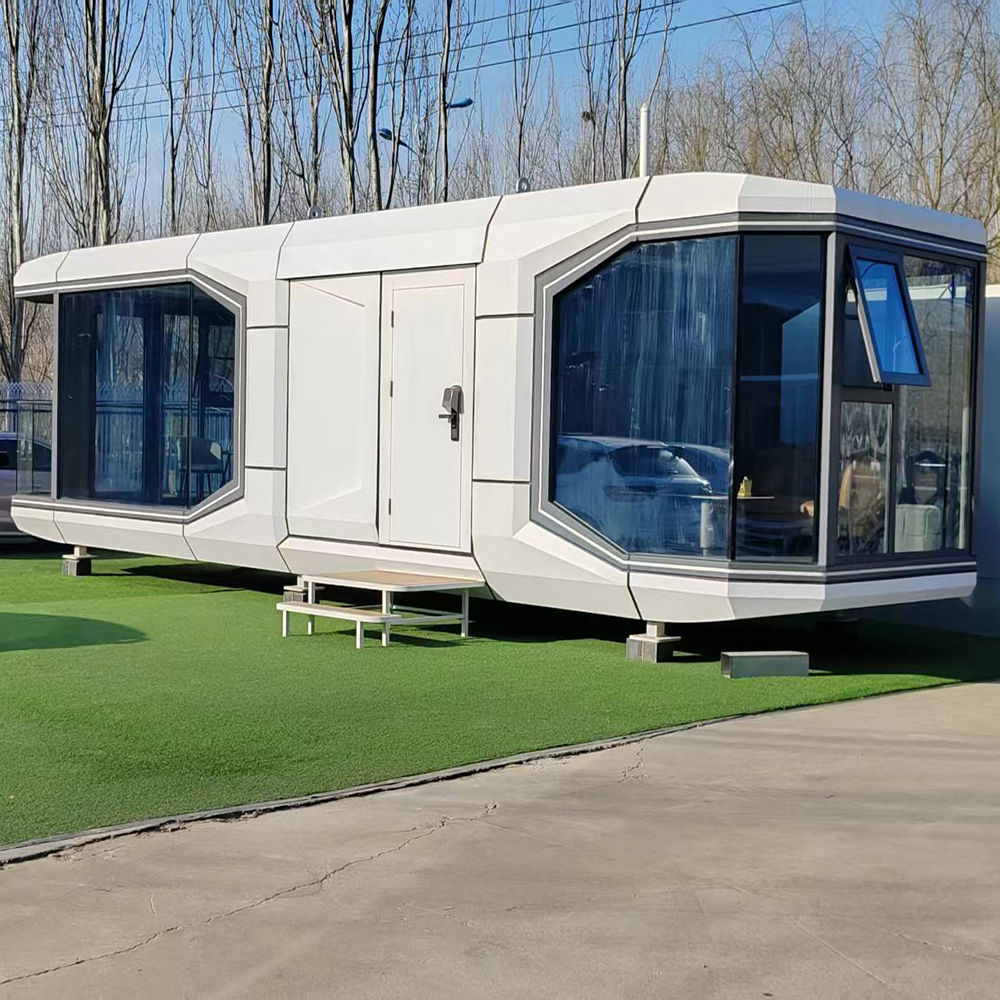-
E-mail
Austin120521@outlook.com -
E-mail
sales@jujiuhouse.com -
Telephone
+86-17864099991 -
Telephone
+86-17854044442
- Chinese
- French
- German
- Portuguese
- Spanish
- Russian
- Japanese
- Korean
- Arabic
- Irish
- Greek
- Turkish
- Italian
- Danish
- Romanian
- Indonesian
- Czech
- Afrikaans
- Swedish
- Polish
- Basque
- Catalan
- Esperanto
- Hindi
- Lao
- Albanian
- Amharic
- Armenian
- Azerbaijani
- Belarusian
- Bengali
- Bosnian
- Bulgarian
- Cebuano
- Chichewa
- Corsican
- Croatian
- Dutch
- Estonian
- Filipino
- Finnish
- Frisian
- Galician
- Georgian
- Gujarati
- Haitian
- Hausa
- Hawaiian
- Hebrew
- Hmong
- Hungarian
- Icelandic
- Igbo
- Javanese
- Kannada
- Kazakh
- Khmer
- Kurdish
- Kyrgyz
- Latin
- Latvian
- Lithuanian
- Luxembou..
- Macedonian
- Malagasy
- Malay
- Malayalam
- Maltese
- Maori
- Marathi
- Mongolian
- Burmese
- Nepali
- Norwegian
- Pashto
- Persian
- Punjabi
- Serbian
- Sesotho
- Sinhala
- Slovak
- Slovenian
- Somali
- Samoan
- Scots Gaelic
- Shona
- Sindhi
- Sundanese
- Swahili
- Tajik
- Tamil
- Telugu
- Thai
- Ukrainian
- Urdu
- Uzbek
- Vietnamese
- Welsh
- Xhosa
- Yiddish
- Yoruba
- Zulu
- Kinyarwanda
- Tatar
- Oriya
- Turkmen
- Uyghur

modular modern container house tiny home prefabricated
The Evolution of Modular Modern Container Homes
When thinking about modular modern container houses, many picture sleek designs crafted from reused shipping containers. The concept has been gaining traction, yet misconceptions persist about costs and feasibility. These homes promise innovation, but their potential extends beyond mere aesthetics.
Understanding the Appeal
The intrigue surrounding these homes often begins with their modular nature. A prefabricated, modular setup isn't just about replicating cookie-cutter models. Each unit offers customization, allowing for personal expression while maintaining cost-effectiveness. As seen with companies like Shandong Jujiu Integrated Housing Co., Ltd., customization plays a critical role in the design phase.
Many are drawn to the eco-friendly aspect. Repurposing shipping containers reflect a move towards sustainability. However, it's crucial to critically assess whether all materials used adhere to genuinely sustainable practices. It’s not just about the container but everything that goes into transforming it into a livable space.
Shandong Jujiu Integrated Housing, with its comprehensive approach from R&D to installation, exemplifies how a company can navigate these challenges while prioritizing innovation over tradition.
The Importance of Design and Functionality
Design often becomes the focal point when discussing tiny homes. The challenge lies in maximizing limited space without sacrificing functionality. A well-designed tiny house should balance efficiency with comfort. This is where experienced firms shine, leveraging modular designs to provide flexible yet practical solutions.
One critical aspect often overlooked is the integration of utilities. Ensuring proper plumbing, heating, and electrical systems within a container's compact dimensions requires meticulous planning and execution. This is not just about fitting systems into a small space but ensuring long-term efficiency and maintenance.
At Shandong Jujiu's facilities, the design teams emphasize these integrations, understanding that longevity and livability stem from these foundational elements.
Challenges in Prefabricated Solutions
While the prefabrication process significantly cuts down construction time, it’s not without its hurdles. Transporting large prefabricated sections requires logistical precision. Navigating local regulations and zoning can vary widely and impact a project's viability.
There’s also the matter of public perception. Some associate prefab with low quality, stemming from past models that focused on speed rather than durability. However, modern companies like Jujiu are actively changing this narrative through rigorous quality control and innovative techniques.
Ultimately, the success of a prefabricated home leans heavily on understanding and overcoming these challenges, leading to the seamless delivery of sustainable housing solutions.
The Role of Technology in Advancements
Technology has been a game changer in enhancing the feasibility of container homes. From 3D modeling in the design phase to smart home technology integration, embracing tech advancements has allowed these homes to meet modern needs.
Advanced materials and design software now enable precise planning for structural integrity and aesthetics. Shandong Jujiu prides itself in adopting cutting-edge technology, allowing for greater precision and customization tailored to individual needs.
This embrace of technology allows for a smooth transition from initial design concepts to the final onsite assembly, showcasing how far the industry has evolved.
Case Studies and Real-World Applications
To truly understand the impact of these homes, consider specific applications. For instance, in urban areas, container homes serve as a practical solution for affordable housing crises. Their modular nature allows them to fit into tight urban spaces without major disruptions.
Rural settings benefit equally, where the rugged durability of containers withstands environmental challenges. Shandong Jujiu’s projects often highlight this adaptability, adjusting designs based on geographical demands.
These real-life applications demonstrate the versatility and practicality of modular homes, moving beyond theoretical appeal to provide tangible solutions to modern housing challenges.
Final Thoughts
The journey of modular modern container house solutions reflects the changing landscape of housing needs. Balancing aesthetics, sustainability, and functionality, firms like Shandong Jujiu Integrated Housing Co., Ltd. showcase the potential within this segment, addressing misconceptions while paving the way for future innovations.
With careful design, technological integration, and clear understanding of local demands, the modular home industry is set to reshape how we view livable, sustainable architecture, proving that these compact structures can indeed offer grand solutions.
Related products
Related products
Best selling products
Best selling products-
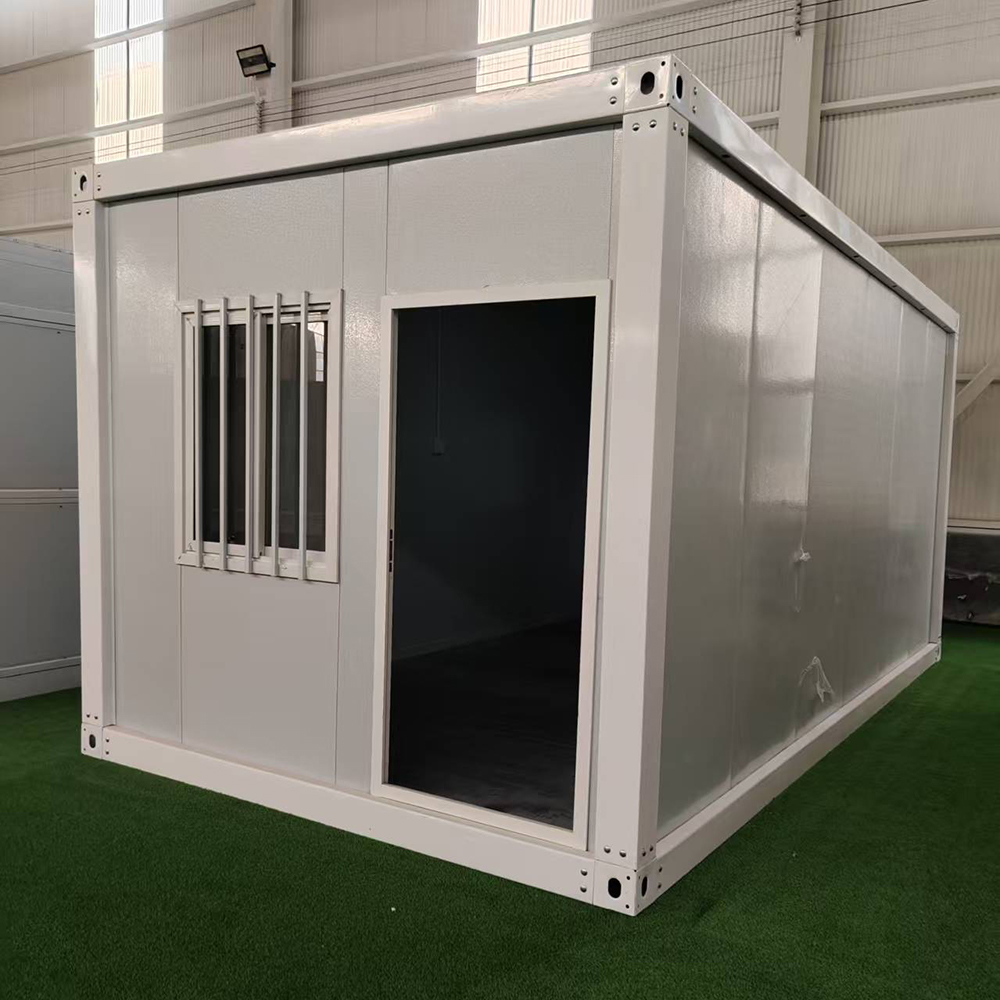 Folding Container Moving House Modular Office Container House Prefab Container for Outdoor Use
Folding Container Moving House Modular Office Container House Prefab Container for Outdoor Use -
 Factory Direct Sales Office Folding Container Luxury House Living Container House
Factory Direct Sales Office Folding Container Luxury House Living Container House -
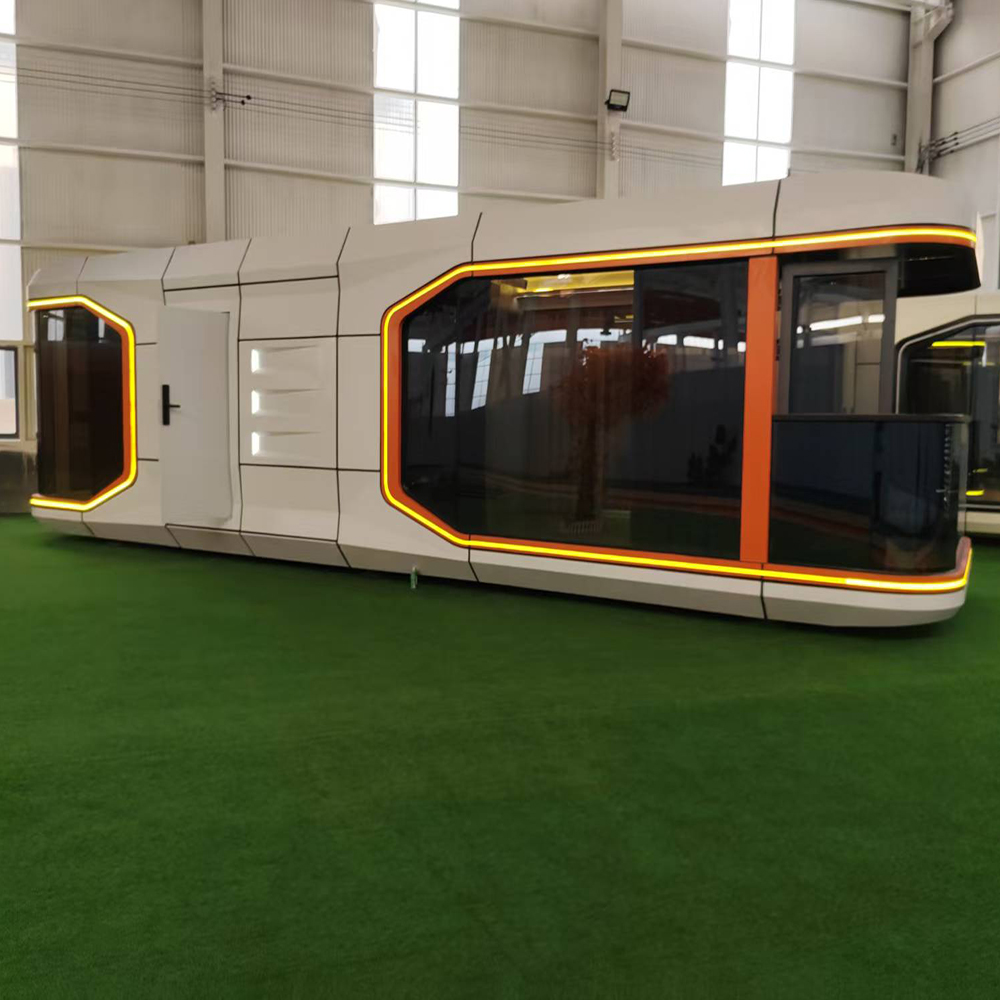 Standard Modern Camping Pod Space Prefabricated Portable Mobile Capsule Room Hotel Bathroom Prefabricated Spaceship House
Standard Modern Camping Pod Space Prefabricated Portable Mobile Capsule Room Hotel Bathroom Prefabricated Spaceship House -
 A container house with a terrace and double-wing folding design, suitable for various purposes such as offices, meeting rooms, living rooms, etc.
A container house with a terrace and double-wing folding design, suitable for various purposes such as offices, meeting rooms, living rooms, etc. -
 Hot-selling foldable container houses, expandable prefabricated houses, suitable for office or living use, with fast delivery.
Hot-selling foldable container houses, expandable prefabricated houses, suitable for office or living use, with fast delivery. -
 Luxury Foldable Two Story Container House for Glamping Resort and Villa Hotel
Luxury Foldable Two Story Container House for Glamping Resort and Villa Hotel -
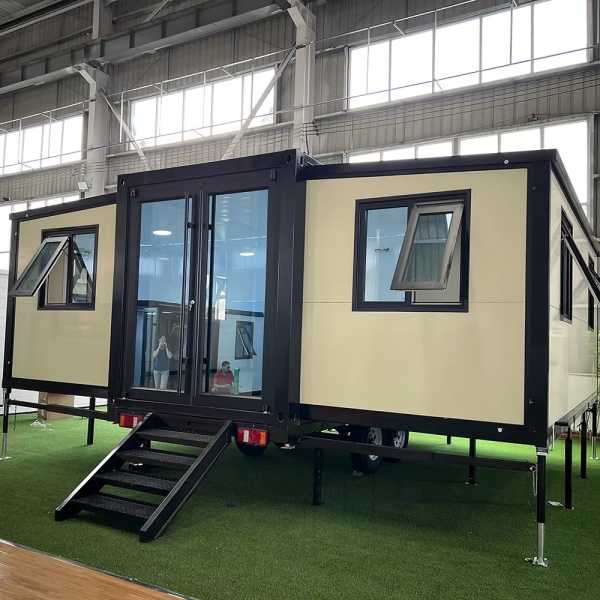 Stair Access Double Wing Expandable Container House | Easy Installation Mobile Office
Stair Access Double Wing Expandable Container House | Easy Installation Mobile Office -
 Reasonable Price 1 Bedroom Modular Container House Folding Container Home for Villa or Apartment Use
Reasonable Price 1 Bedroom Modular Container House Folding Container Home for Villa or Apartment Use -
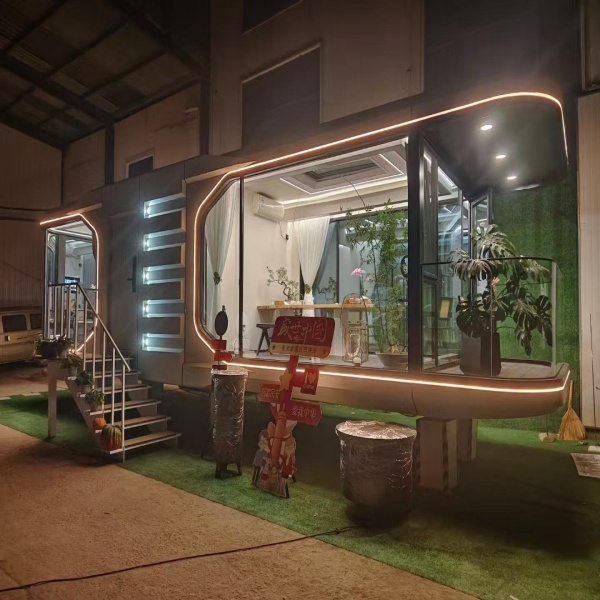 Outdoor ecological capsule rooms, luxury pods, space capsule hotel rooms, prefabricated space capsules, container houses
Outdoor ecological capsule rooms, luxury pods, space capsule hotel rooms, prefabricated space capsules, container houses -
 Detachable Design Prefabricated Container House Portable Modular Office Building Folding Container House
Detachable Design Prefabricated Container House Portable Modular Office Building Folding Container House -
 Dual-Wing Folding Container House: Fast Assembly, Space-Saving & Multi-Scene Adaptable
Dual-Wing Folding Container House: Fast Assembly, Space-Saving & Multi-Scene Adaptable -
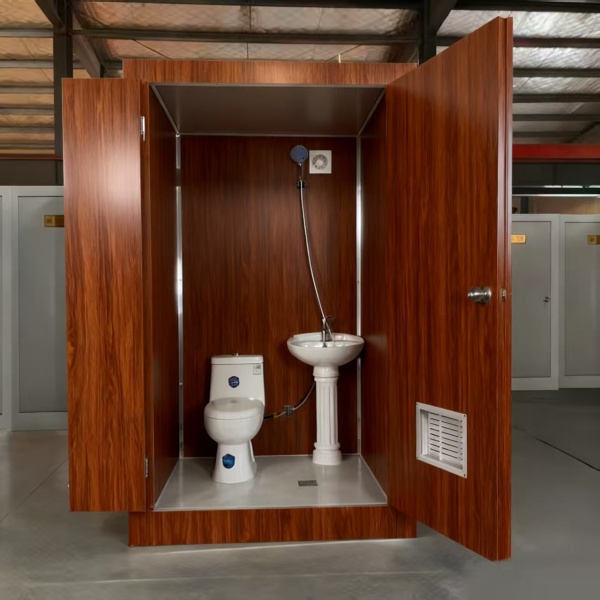 Portable outdoor camping bathroom, mobile toilet, prefabricated modular villa & rental of outdoor and indoor showers
Portable outdoor camping bathroom, mobile toilet, prefabricated modular villa & rental of outdoor and indoor showers
Related search
Related search- fold out tiny home
- prefabricated house container
- 15ftx 20ft mobile expandable prefab house mobile home prefab
- house that folds out
- Buy foldable prefabricated home
- China expandable container house with solar energy
- prefab folding house
- fold out shipping container homes
- trailer that folds out into a house
- china wholesale container prefabricate house









